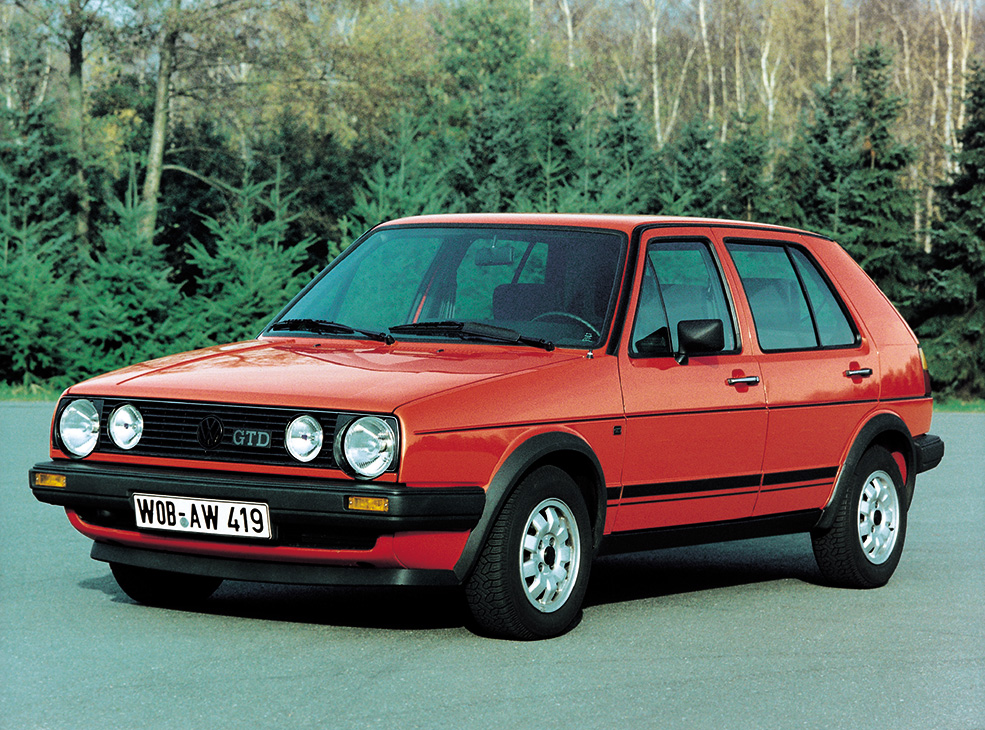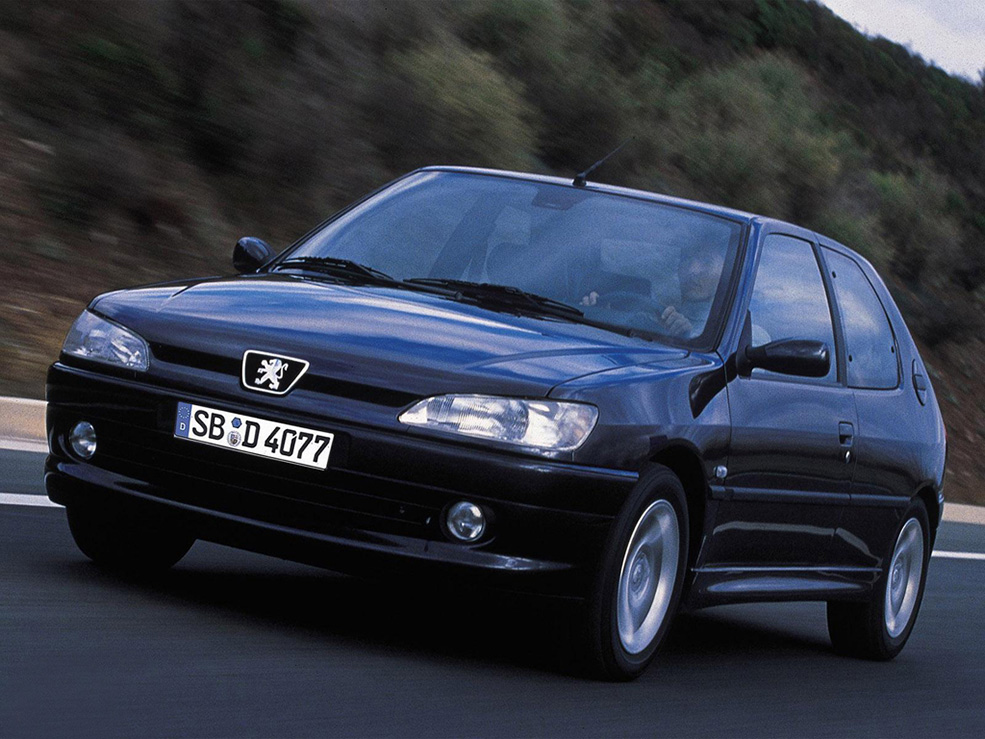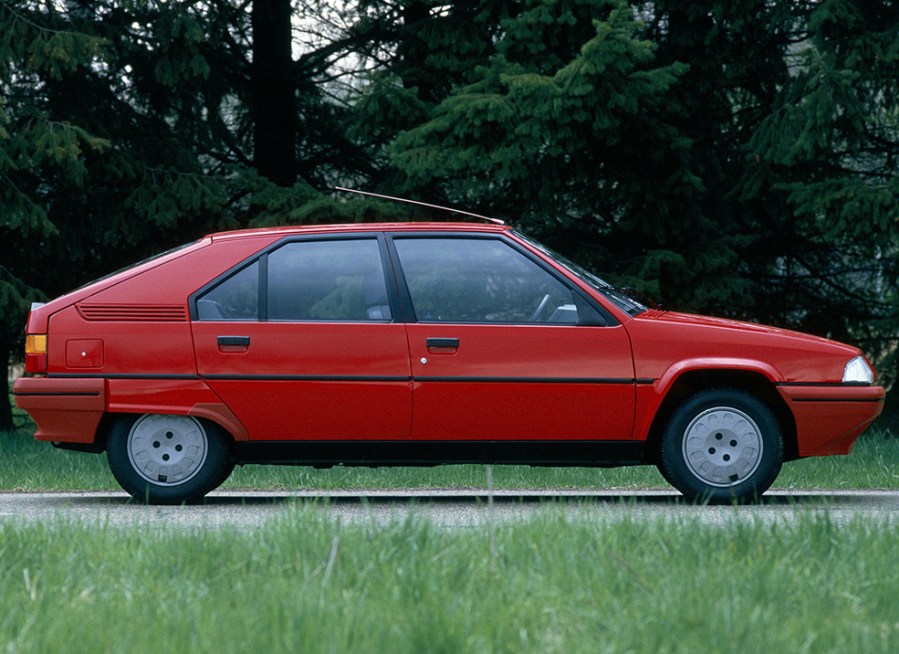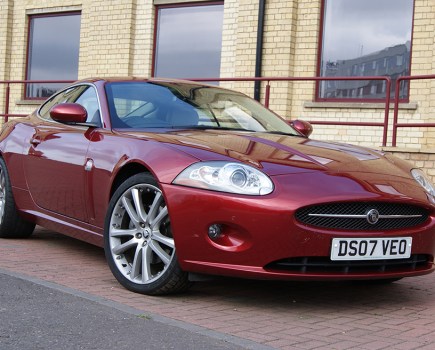CITROEN BX (1983-1994)
The angular BX marked Citroen’s breakthrough into the British mass market, proving to be the perfect blend of the advanced engineering expected of the marque tempered with conventional and dependable parts from the Peugeot parts bin. The BX was also one of the vanguards for diesel power in Britain thanks to its refined and lightweight Peugeot XUD diesel engines, available in 1.7- and 1.9-litre naturally aspirated and 1.7-litre turbocharged forms. In the lightweight BX the XUD provided the first diesel to be a genuine alternative to petrol engines for ordinary motorists, teaming abstemious fuel consumption with decent performance. The XUD also had modest servicing needs for an early diesel, which teamed with its low running costs and long-distance comfort made the oil-burning BX a popular company car. When teamed with the Citroen’s trick suspension the XUD-powered BX also made a superb towing vehicle for those with caravans, boats and other trailers.
The durability, economy and practicality of the diesel BXs meant that they retained some desirability even as the petrol versions’ values fell to virtually zero. Values are still very low but the BX’s distinctive style, quirky Citroen character and increasingly recognised rarity has led to prices increasing for good-condition examples of the right sort (diesel estate and GT or GTi petrol models, in the main). Average values are hovering around the £2000 and have been for several years, although the upper range of prices has occasionally broken the £5000 barrier while the bottom of the market remains steadfastly in three-figure territory.

Golf GTD Golf II
VOLKSWAGEN GOLF MK2 GTD (1985-1991)
In the 1980s Volkswagen excelled at making two thing – diesel engines and hot hatchbacks. So it seemed natural to combine the two into what was the first decent attempt at making a ‘sports diesel’. The GTD had the standard 1.6-litre turbodiesel, tuned to 90bhp courtesy of an intercooler. Otherwise the GTD was the same specification as the Golf Driver, having some but not all of the GTI’s running gear upgrades (stiffer and lower suspension but no close-ratio gearbox or rear anti-roll bar) and cosmetics. The turbodiesel wasn’t the most sophisticated motor – it had an overfuelling lever that had to be pulled manually for cold-starting and needed an oil change every 4000 miles – but it offered punchy performance, very high miles-per-gallon when driven normally and good refinement. The GTD’s engine was also light enough not to corrupt the Golf’s decent handling and provided enough power to enjoy it.
Always a niche product that sold in small numbers and long overshadowed in terms of price and desirability by the GTI, the GTD is now a rare car. Many ‘donated’ their drivetrains to be put in other VWs and tuned up or to provide a power boost to heavyweight Volkswagen campers. Only around 50 GTDs are left on the UK’s roads and none have been recorded on The Market’s spreadsheets. None the less the values have been climbing at around £1000 per year, from £2000 or so for a tidy example in 2014 to the region of £5000 today for the best example in tidy condition and original specification. Modified examples are worth much less- around half that.

PEUGEOT 306 D-TURBO S (1995-2002)
Taking up where the Golf left off, the 306 D-Turbo S was the first diesel to not only have performance and handling worthy of being called a hot hatchback but being able to match (and by some measures beat) the full-bore petrol-powered 306 GTI in terms of performance. The 306, in all its forms, has always been held in high esteem for its balanced and nicely communicative handling and Peugeot spent a lot of effort on negating as much of the diesel engine’s extra weight as possible, such as by canting the entire engine backwards in the engine bay to put the centre of gravity slightly behind the front wheels. The engine itself was the 1.9-litre turbo-intercooled version of the famous XUD – rather old-fashioned technology by the 1990s but still good. Performance was strong, with 0-60mph taking 10.8 seconds and a top speed of 112mph, and there was good economy on offer with an average of 48.4mpg. The D-Turbo S outsold the GTI for several years and created a market for performance diesels which was quickly jumped into by other manufacturers. Later 306s adopted the XUD’s common-rail successor, the HDI, with more power and similarly good dynamics.
Still very much in the value doldrums with many other cars from the end of the millenium, the 306’s reputation for reliability and driver enjoyment has stopped values sinking too low, especially for desirable variants like the D-Turbo S. None the less just four years ago the average value was just £1000. Two years ago that had jumped to £3500 although plenty of weathered and worn examples were still out there for well under £1000. The most recent average offered by The Market is £3900, helped by a one-time high of £13,000 for one car which must have been in exceptional condition with low mileage. The data for this year still records a number of D-Turbo’s changing hands for three-figure sums.








